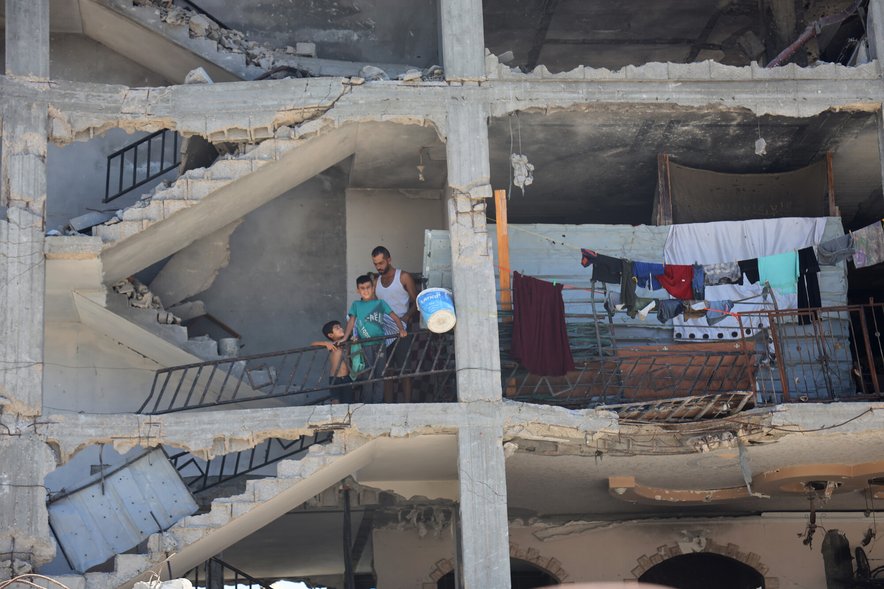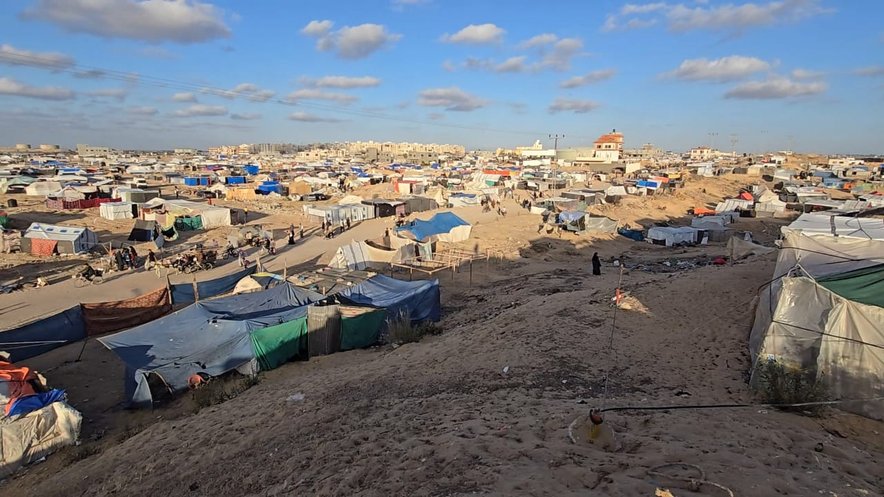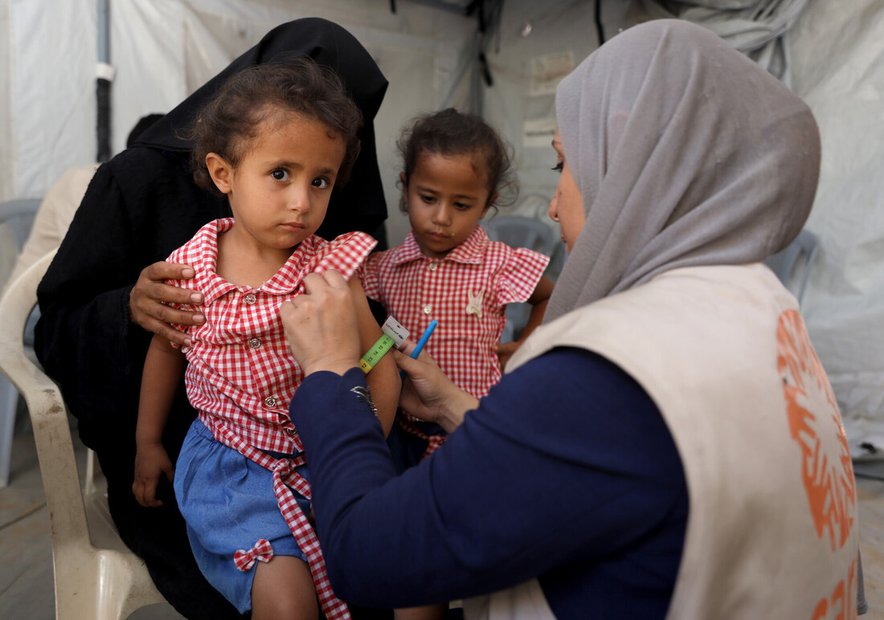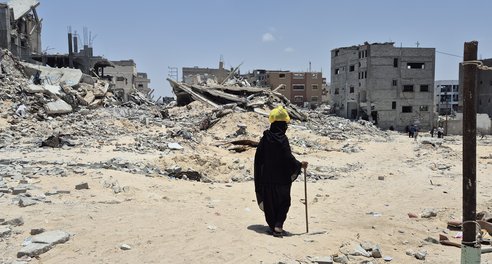Israel’s order on Tuesday 9 September to forcibly displace one million people from Gaza City to the south will cause immense suffering for Palestinians in Gaza. The announcement comes after the intensifying of airstrikes across the city and levelling of dozens of high-rise towers and residential buildings over the past week. More than 50 Palestinians were killed across Gaza on Wednesday.
Forcing one million people to leave their homes and places of shelter, most of whom have already been displaced multiple times, will push an already catastrophic humanitarian situation over the edge. Children under five, and pregnant and breastfeeding women are among those at greatest risk from famine in Gaza City. Deciding whether to stay or leave is an almost impossible choice for people exhausted by war and who have no guarantee of shelter or safety in the south.
We spoke with Bassem*, who currently lives with his wife Hana*, their 17-month-old triplets and one-month-old daughter in an apartment in Gaza City. They have been displaced multiple times during the conflict, and spent 15 months in a tent in the South before returning home to Gaza City during the ceasefire in February 2025. They are now facing the agonising decision whether to move once more.
*Names changed to protect identity
Bassem’s story: Living in constant fear
Two weeks ago, the Israeli tanks were about 200 metres from us, we heard the sounds of their engines whenever they moved.
"That was when most of the residents of the area left and were displaced. We stayed along with a few other neighbours. I don’t want my family to go through the bitter experience of displacement again. I do not want my children to go back to living in a tent, a tent that lacks all the necessities for a dignified life, but I also do not want to see them get killed in front of me. They are my responsibility.

"Fear has been our shadow since October 7, but each day it takes a different form that we haven’t seen before. Yesterday, a drone quadcopter entered our half-destroyed apartment. It is the type that video records you and can discharge a bomb. It stood at the window, and it was recording us. I stood and asked my wife to stay calm and not try to move or hide because it could kill us all. My 17-month-old daughter started talking to the drone in her gibberish, not knowing that it was a deadly weapon and not a toy. A minute later the drone entered from the kitchen window and then left the house. Every two days a different neighbour would be visited by this drone.”
To stay or to leave: An impossible choice

“If the airstrikes edge closer and intensify in our area, then we will surely have to leave, but I will do everything in my power to not get displaced to the south. We left our home because it is on the fifth floor, and this is dangerous and risky for us. We are now sharing a room at my uncle’s house. Every morning, we wake up to the sound of quadcopters shooting at our homes.
"Lots of people have left the area, some have rented plots of land or houses in the south. Anxiety is gripping us all and rent prices in the south are really high – a very modest apartment would cost us at least 2,500 shekels (~750 USD) – now we’re hearing this has doubled – and that people are actually paying rent for land to set up their tents on.
"One of the difficulties we face is the cost of moving our stuff. One trucks costs more than 2,500 shekels (~750 USD). My children need formula milk, diapers and nutritional supplements, but unfortunately, I can’t provide for the needs of triplets and a fourth, therefore they are suffering from acute malnutrition. You can only imagine how my day to day looks like. I wake up early to go find 12 diapers, each single one sold for 11 shekels (3.3 USD), and a formula milk can, which is for 80 shekels (~24 USD). I cannot afford to buy nutritional supplements. These are our daily expenses for the children without having bought anything for the house.”
The most begging question remains, where should we go?
“Of course, everyone is preparing for the worst-case scenario of displacement. I do not know what tomorrow holds for my family, whether we will survive in our home or whether we will be forced out.
"Of course, our suffering is magnified when we are displaced. Life in the tents is like being condemned to a slow death, it robs your body of its soul, and it makes your heart suffer.”
Crisis in Gaza: How you can help

A catastrophic, manmade humanitarian crisis is being inflicted by the Israeli Government on Gaza. Every single person is facing famine.
With your help, we are providing life-saving support. CARE and our partners in Gaza are delivering clean water and providing critical healthcare to women and children, risking their lives in the process.
We urgently need more funds so that we can scale up our response in Gaza as soon as the blockade of aid by the Israeli government is lifted.
Your support is quite literally a lifeline. Please join thousands of people in the UK who are determined to help protect women and their communities from this horrific conflict and donate today.



